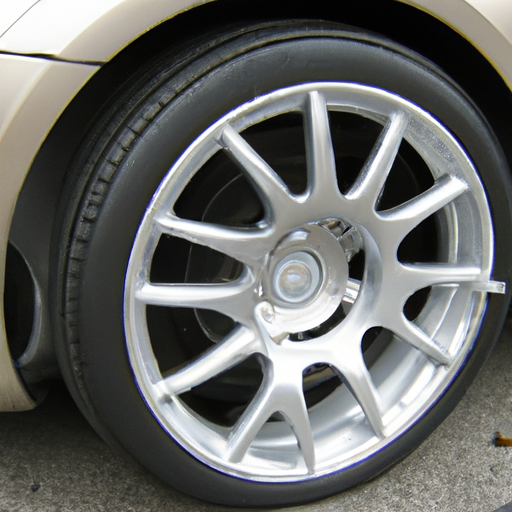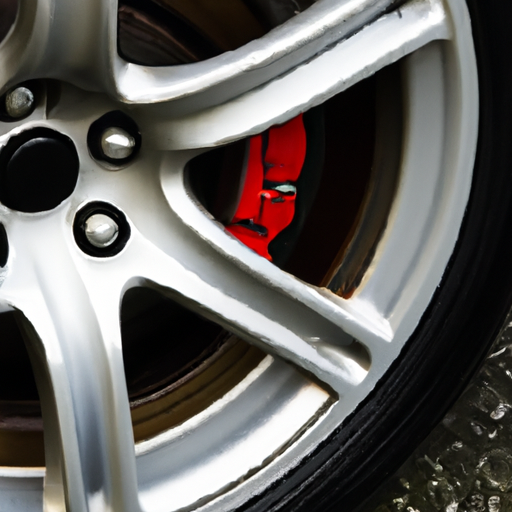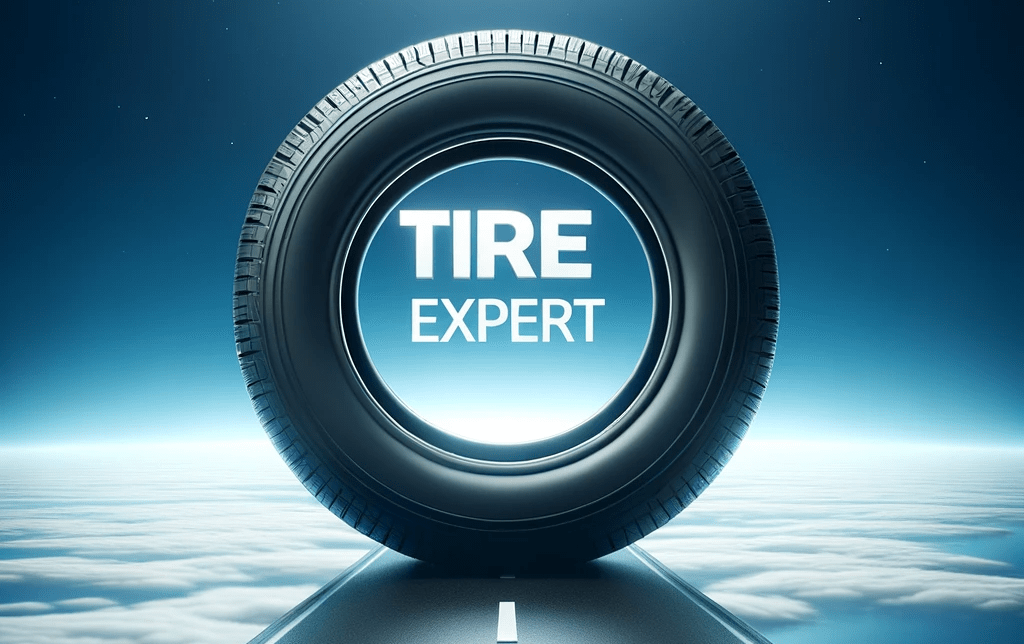When it comes to car wheels, the choices can be overwhelming. From alloy wheels to steel wheels, and from spoke wheels to multi-piece wheels, the options seem endless. But fear not, this article will guide you through the vast array of car wheel options available, helping you make an informed decision about which type is best suited to your needs. So, let’s buckle up and explore the different types of car wheels on the market today.

Steel Wheels
Basic Overview
One common type of car wheels is steel wheels. These wheels are made from steel, which is a strong and durable material. Steel wheels are typically the most affordable option for car owners, making them a popular choice for many. They are often a standard option on budget-friendly vehicles. Steel wheels are designed to be practical and functional rather than stylish, as they are usually plain in appearance and lack intricate designs or elaborate finishes.
Advantages
One of the main advantages of steel wheels is their affordability. They are generally the least expensive option compared to other types of wheels. This makes them a practical choice for car owners who are on a tight budget or simply looking for a cost-effective solution. Additionally, steel wheels are known for their durability. They can withstand tough conditions, including potholes and rough road surfaces, without sustaining significant damage. This means that steel wheels are less prone to bending or cracking under pressure, making them a reliable choice for everyday driving.
Disadvantages
Although steel wheels are affordable and durable, they do have some disadvantages. One of the main drawbacks is their weight. Steel wheels tend to be heavier than other types of wheels, which can affect the overall performance of the vehicle. The added weight can result in decreased fuel efficiency and slower acceleration. Additionally, steel wheels are more susceptible to corrosion. They are prone to rusting, especially in regions with harsh weather conditions or high humidity. This can affect the appearance of the wheels and potentially lead to structural damage over time if not properly maintained.
Alloy Wheels
Basic Overview
Another popular type of car wheels is alloy wheels. As the name suggests, alloy wheels are made from a combination of metals, typically aluminum or magnesium. These wheels are known for their lightweight construction and stylish designs. Alloy wheels are often considered as an upgrade option for vehicles, offering both aesthetic appeal and improved performance.
Advantages
One of the main advantages of alloy wheels is their lightweight nature. The lighter weight of alloy wheels can improve a vehicle’s handling and maneuverability, as it reduces unsprung weight. This results in better traction, especially during cornering and braking. Additionally, alloy wheels have better heat conduction properties compared to steel wheels. This means that they dissipate heat more efficiently, reducing the risk of brake fade. Furthermore, alloy wheels are available in a wide range of designs and finishes, allowing car owners to personalize the appearance of their vehicles according to their preferences.
Disadvantages
While alloy wheels offer numerous advantages, they do have a few drawbacks. One drawback is their higher cost compared to steel wheels. Alloy wheels are generally more expensive due to the materials used and the manufacturing process involved. This can be a deterrent for car owners on a limited budget. Another disadvantage is that alloy wheels are more susceptible to damage from curbs and potholes. The lightweight construction of alloy wheels makes them more prone to bending or cracking upon impact. Car owners with alloy wheels should exercise caution when driving to avoid potential damage.
Chrome Wheels
Basic Overview
Chrome wheels are a type of car wheels that have a chrome plating applied to their surface. This plating gives them a shiny and reflective appearance, adding a touch of elegance and sophistication to any vehicle. Chrome wheels are often considered a premium option and are popular among car enthusiasts who want to make a statement with their wheels.
Advantages
One of the main advantages of chrome wheels is their visually appealing and luxurious look. The chrome plating gives the wheels a mirror-like finish, reflecting light and drawing attention to the vehicle. Chrome wheels can significantly enhance the overall aesthetics of a car, elevating its appearance and making it stand out from the crowd. Additionally, chrome wheels are known for their corrosion resistance. The chrome plating acts as a protective layer, preventing the wheels from rusting or corroding even in harsh weather conditions.
Disadvantages
While chrome wheels offer a stunning appearance, they do come with some disadvantages. One of the main drawbacks is their high maintenance requirements. Chrome wheels require regular cleaning and polishing to maintain their shine and prevent the formation of rust or stains. Failure to properly care for chrome wheels can result in tarnishing or peeling of the chrome plating. Another disadvantage is that chrome wheels are prone to scratches and damage. The reflective nature of the chrome surface makes scratches more visible, and any impact or contact with rough surfaces can cause the chrome plating to chip or crack.
Forged Wheels
Basic Overview
Forged wheels are a premium type of car wheels that are manufactured through a forging process. This process involves the shaping of heated metal using compressive forces, resulting in a strong and durable wheel construction. Forged wheels are often revered for their superior strength and lightweight properties, making them a popular choice among performance car enthusiasts.
Advantages
One of the main advantages of forged wheels is their exceptional strength. The forging process creates a dense and uniform metal structure, resulting in wheels that can withstand high amounts of load and pressure. This makes forged wheels ideal for high-performance vehicles that require wheels capable of handling extreme driving conditions. Additionally, forged wheels are significantly lighter than their cast or steel counterparts. The lightweight nature of forged wheels reduces unsprung weight, improving acceleration, braking, and overall handling of the vehicle. Furthermore, the manufacturing process allows for unique and intricate designs, giving car owners the option to customize their wheels according to their personal style.
Disadvantages
While forged wheels offer numerous benefits, they do come with a few disadvantages. One of the main drawbacks is their higher cost. The manufacturing process involved in forging wheels is more complex and time-consuming, resulting in a higher price tag compared to other types of wheels. This can make forged wheels an expensive option for car owners on a limited budget. Another disadvantage of forged wheels is their susceptibility to cosmetic damage. The lightweight construction and intricate designs of forged wheels make them more prone to scratches and chips. Despite their exceptional strength, impacts from curbs or potholes can still result in visible damage to the wheel’s surface.

Carbon Fiber Wheels
Basic Overview
Carbon fiber wheels are a cutting-edge type of car wheels that utilize advanced composite materials. These wheels are made from a combination of carbon fiber and resin, resulting in an incredibly strong and lightweight wheel construction. Carbon fiber wheels are relatively new to the automotive industry but have gained popularity among high-performance sports cars and supercars due to their superior performance capabilities.
Advantages
One of the main advantages of carbon fiber wheels is their exceptional strength-to-weight ratio. Carbon fiber is incredibly strong and lightweight, making it an ideal material for wheels that require high performance. The lightweight nature of carbon fiber wheels reduces rotational mass and unsprung weight, enhancing acceleration, handling, and overall vehicle performance. Furthermore, carbon fiber wheels have excellent heat dissipation properties, reducing the risk of brake fade and improving overall braking performance. Additionally, carbon fiber wheels offer a distinct and modern appearance, enhancing the aesthetics of high-end vehicles.
Disadvantages
While carbon fiber wheels offer numerous benefits, they also come with a few disadvantages. One of the main drawbacks is their cost. Carbon fiber wheels are currently the most expensive option on the market, primarily due to the high cost of carbon fiber materials and the complex manufacturing processes involved. This makes carbon fiber wheels out of reach for many car owners on a limited budget. Additionally, carbon fiber wheels are more susceptible to damage from impacts and rough road conditions. Unlike metal wheels, carbon fiber wheels do not have the same resilience to bending or cracking. This means that any significant impact or contact with curbs or potholes may result in irreparable damage to the wheel.
Wire Wheels
Basic Overview
Wire wheels, also known as wire-spoke wheels, are a classic type of car wheels that feature a series of wire spokes arranged radially around the wheel hub. These wheels were popular in vintage and classic cars and are often associated with a vintage aesthetic. Wire wheels have a timeless appeal and are favored by car enthusiasts who appreciate the nostalgia and elegance they bring to a vehicle’s appearance.
Advantages
One of the main advantages of wire wheels is their visual appeal and vintage charm. The intricate design of wire spokes adds a touch of elegance and class to any car, making it a popular choice for classic vehicle restorations or retro styling. Additionally, wire wheels are relatively lightweight compared to other types of wheels, which can improve overall vehicle performance and handling. Furthermore, wire wheels have better ventilation properties, allowing air to flow through the spokes, which can result in improved brake cooling.
Disadvantages
While wire wheels offer a classic and stylish look, they do come with a few disadvantages. One drawback is their maintenance requirements. Wire wheels require regular cleaning and polishing to keep them in good condition, as the spokes can become dirty or corroded over time. Additionally, the intricate design of wire wheels makes them more vulnerable to damage. The spokes are more likely to be bent or broken upon impact, which can be costly to repair. Furthermore, wire wheels are not as readily available as other types of wheels, which may limit the options for car owners seeking replacements or upgrades.

Painted Wheels
Basic Overview
Painted wheels are a common type of car wheels that have a painted finish applied to their surface. The paint can be any color or finish, ranging from glossy to matte, allowing car owners to customize the appearance of their wheels according to their preferences. Painted wheels are a versatile option that can complement various vehicle styles and colors.
Advantages
One of the main advantages of painted wheels is the ability to personalize a vehicle’s appearance. The wide range of colors and finishes available allows car owners to choose a wheel design that matches their unique style or complements the vehicle’s overall aesthetic. Painted wheels can significantly enhance the visual appeal of a vehicle, adding a pop of color or creating a cohesive look with the body paint. Additionally, painted wheels are generally more resistant to corrosion compared to bare metal. The paint acts as a protective layer, preventing rust or damage to the wheel’s surface.
Disadvantages
While painted wheels offer versatility and customization options, they do have a few disadvantages. One drawback is the potential for chipping or peeling of the paint over time. The wheel’s surface is exposed to various elements, including rocks, curbs, and road debris, which can cause the paint to chip or scratch. This can affect the overall appearance of the wheels, requiring touch-ups or repainting. Additionally, painted wheels may require more maintenance compared to other types of wheels. Regular cleaning and waxing are necessary to maintain the wheel’s painted finish and prevent the accumulation of dirt or grime that could potentially damage the paint.
Spoked Wheels
Basic Overview
Spoked wheels, also known as wire-spoke wheels, are a type of car wheels that consist of a central hub with spokes radiating from it to the outer rim. These wheels have a classic and timeless design, often associated with vintage and retro cars. Spoked wheels are favored by car enthusiasts who appreciate the elegance and heritage they bring to a vehicle’s appearance.
Advantages
One of the main advantages of spoked wheels is their visually appealing and classic look. The intricate design of the spokes adds a touch of sophistication and elegance to any vehicle. Spoked wheels can greatly enhance the aesthetics of a vintage or classic car, elevating its overall appearance and making it stand out from modern vehicles. Additionally, spoked wheels are typically lighter than other types of wheels, which can improve a vehicle’s performance and handling. The reduced weight helps reduce unsprung weight and rotational mass, resulting in better acceleration, braking, and overall maneuverability.
Disadvantages
While spoked wheels offer a timeless and stylish design, they do come with a few disadvantages. One drawback is the potential for maintenance and cleaning difficulties. Due to the intricate design of spoked wheels, cleaning the spokes can be more challenging compared to solid or alloy wheels. The tight spaces between the spokes can trap dirt or grime, requiring extra effort to ensure the wheels stay clean. Additionally, spoked wheels may be more susceptible to damage from impacts or rough road conditions. The spokes are more prone to bending or breaking, which can be costly to repair or replace. Furthermore, spoked wheels may not be as readily available as other types of wheels, limiting the options for car owners seeking replacements or upgrades.

Split-rim Wheels
Basic Overview
Split-rim wheels, also known as multi-piece wheels, are a type of car wheels that consist of multiple components or pieces that are assembled together to create a complete wheel. These wheels are often associated with high-performance and customized vehicles, where the flexibility and customization options of split-rim wheels are appreciated.
Advantages
One of the main advantages of split-rim wheels is the ability to customize various aspects of the wheel design. The multi-piece construction allows for flexibility in choosing the rim width, offset, and even the choice of different materials for each wheel component. This level of customization offers car owners the opportunity to create a unique wheel setup that perfectly suits their vehicle and performance requirements. Additionally, split-rim wheels are generally lighter than one-piece wheels of similar size and design. The reduced weight can improve acceleration, braking, and overall vehicle handling.
Disadvantages
While split-rim wheels offer customization options and performance benefits, they do have a few disadvantages. One drawback is the increased complexity and maintenance requirements associated with multi-piece wheels. Assembling and disassembling split-rim wheels can be more time-consuming and challenging compared to single-piece wheels. Additionally, the multiple components of split-rim wheels may require regular maintenance to ensure proper alignment and tightness of the bolts or fasteners. Failure to maintain split-rim wheels correctly can lead to safety issues or potential wheel failures. Furthermore, the customization options of split-rim wheels often come with a higher price tag compared to one-piece wheels. Customizing split-rim wheels to individual specifications can result in increased costs, making them a less affordable option for some car owners.
Beadlock Wheels
Basic Overview
Beadlock wheels are a specialized type of car wheels that are commonly used in off-road vehicles and in motorsports such as rock crawling or desert racing. These wheels feature an additional outer ring or beadlock that clamps the tire bead to the wheel, preventing it from detaching during extreme off-road conditions. Beadlock wheels are designed to provide maximum tire grip and ensure the tire stays securely mounted to the wheel even at low tire pressures.
Advantages
One of the main advantages of beadlock wheels is their ability to provide increased traction in off-road or extreme driving conditions. The additional outer ring clamps the tire bead tightly against the wheel, reducing the risk of tire displacement or loss of traction. This allows off-road vehicles to navigate through difficult terrain with greater stability and control. Additionally, beadlock wheels offer the flexibility to run lower tire pressures without the risk of the tire bead coming off the wheel. Lower tire pressures can improve a vehicle’s performance in off-road conditions, as it allows the tire to conform to uneven surfaces and provides enhanced grip.
Disadvantages
While beadlock wheels offer advantages in extreme off-road situations, they come with a few disadvantages. One major drawback is the increased weight of beadlock wheels compared to standard wheels. The additional outer ring adds weight to the wheel assembly, which can impact the vehicle’s overall performance and fuel efficiency. Additionally, beadlock wheels require regular maintenance and inspection to ensure the beadlock rings remain securely fastened and do not loosen over time. Failure to properly maintain beadlock wheels can lead to safety risks or tire failures. Furthermore, beadlock wheels are often more expensive than standard wheels due to their specialized design and construction. This can be a determining factor for car owners on a limited budget or those who do not engage in extreme off-road activities.
In conclusion, there are a variety of car wheels available, each with its own set of advantages and disadvantages. Steel wheels offer affordability and durability but may be heavier and more prone to corrosion. Alloy wheels provide lightweight construction and stylish designs but can be more expensive and susceptible to damage. Chrome wheels offer a visually appealing and luxurious look but require higher maintenance and are prone to scratches. Forged wheels offer exceptional strength and lightweight properties but come with a higher cost and susceptibility to cosmetic damage. Carbon fiber wheels provide exceptional strength-to-weight ratio and improved performance but are the most expensive option and vulnerable to impacts. Wire wheels offer a classic and stylish look but require regular maintenance and may be more vulnerable to damage. Painted wheels allow for customization options and personalized appearance but may require touch-ups and are prone to chipping. Spoked wheels offer a timeless and elegant design but may be challenging to clean and more susceptible to damage. Split-rim wheels provide customization flexibility but come with increased complexity and maintenance requirements. Beadlock wheels offer increased traction and tire grip in extreme off-road conditions but are heavier and more expensive. Consider your specific needs, preferences, and budget when choosing the right type of wheels for your car.


